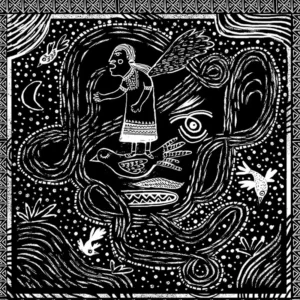 This presentation, held as part of Earth Fest, consisted of panel discussions featuring Indigenous voices. The goals for this event were:
This presentation, held as part of Earth Fest, consisted of panel discussions featuring Indigenous voices. The goals for this event were:
- Establish new perspectives on science and culture.
- Create new synergies between Indigenous and non-Indigenous elements of our communities.
- Build bridges between urban and rural wisdoms.
The event was sponsored by the Center for Culture, History, and Environment (CHE) with special thanks to the Nelson Institute for Environmental Studies, Mundo Esperanza, the Holtz Center, the UW-Madison English department, and the Integrated Liberal Studies Program for their generous support.
The panel on poetry and Indigenous voices featured these speakers and topics:
- Sarli Mercado and Erika Rosales Garcia, UW-Madison, Bilingual Poetry Reading of Mapuche, Mixtec, and Mayan Poets
- Mixtec poet Celerina Sánchez, with Ms. Sanchez’s translator, UW–Madison’s Lori DiPrete Brown
The panel on Indigenous voices in science featured these speakers and topics:
- Jennifer Gauthier, director of the Sustainable Development Initiative, College of the Menominee Nation, Indigenous Ways of Knowing: Learning from Language
- Constantino Aucca Chutas, Jefe del Área de Conservación, Global Forest Generation, Cusco, Peru, Roots of Resilience: Indigenous Leadership in Reforesting the Andes
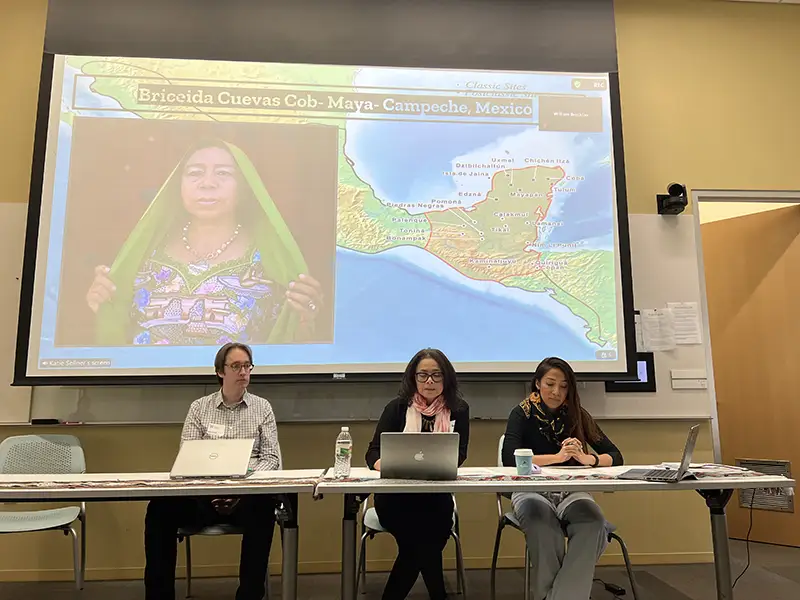
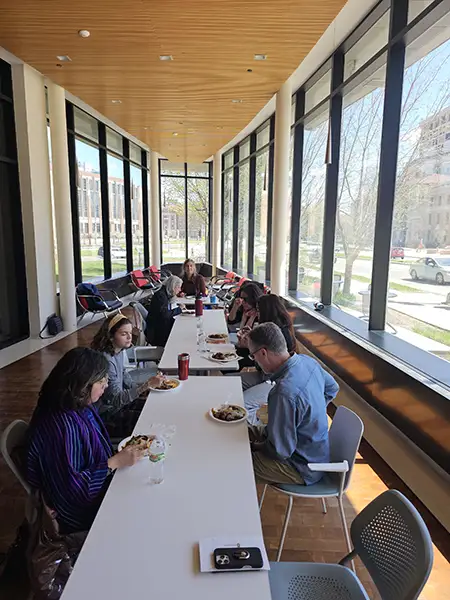
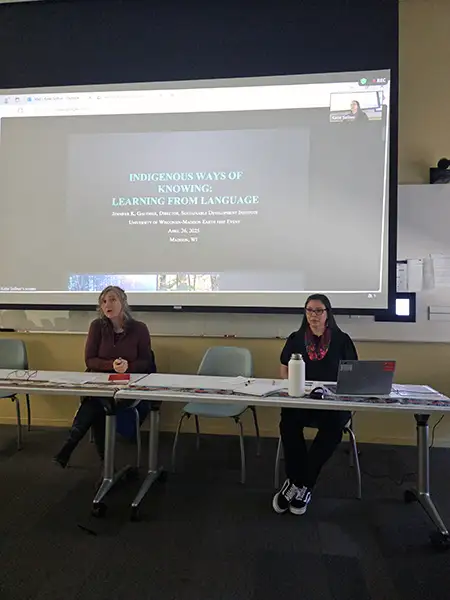
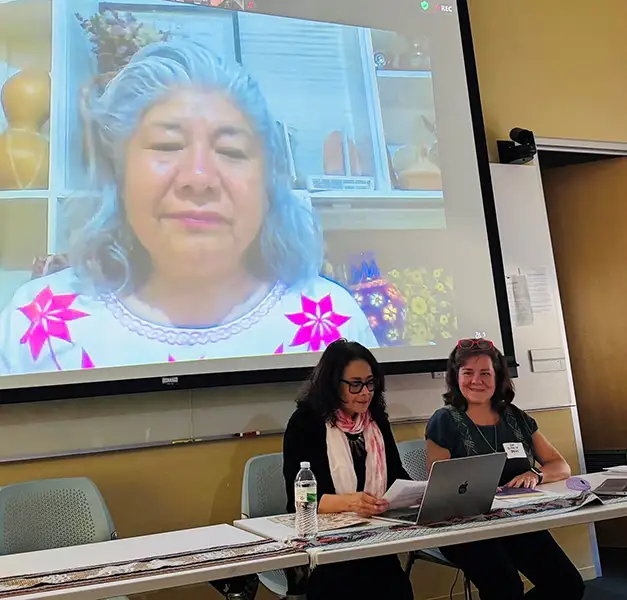
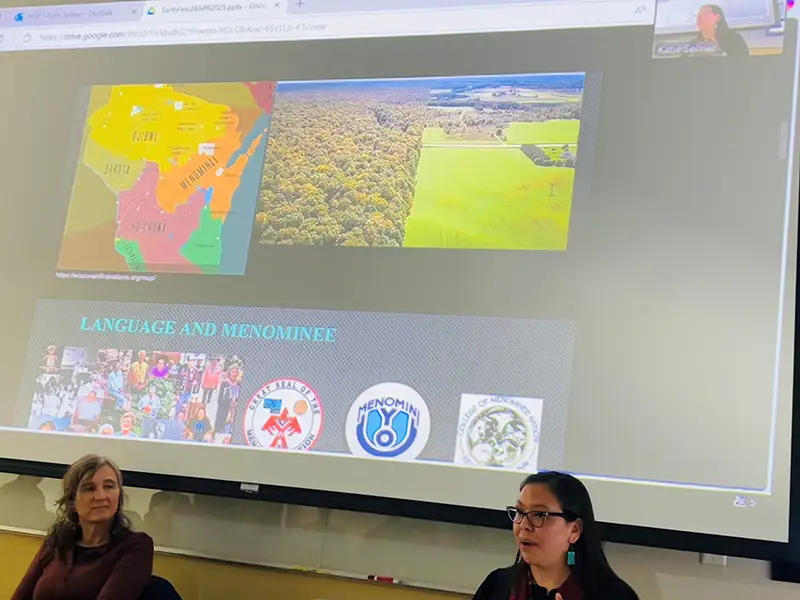
About the Speakers
Sarli Mercado
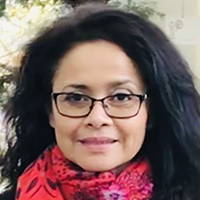 Sarli E. Mercado, PhD, is a literary critic, poet, and translator. Sarli is the author of Cartographies of Exile: On the poetry of Juan Gelman and Luisa Futoransky [Cartografías del destierro: En torno a la poesía de Juan Gelman y Luisa Futoransky (2008)]. She has published and presented her research on contemporary Spanish American poetry, visual arts in connection human rights violations and memory sites, as well as to urban and non-urban spaces in the U.S., Latin America, and Europe.
Sarli E. Mercado, PhD, is a literary critic, poet, and translator. Sarli is the author of Cartographies of Exile: On the poetry of Juan Gelman and Luisa Futoransky [Cartografías del destierro: En torno a la poesía de Juan Gelman y Luisa Futoransky (2008)]. She has published and presented her research on contemporary Spanish American poetry, visual arts in connection human rights violations and memory sites, as well as to urban and non-urban spaces in the U.S., Latin America, and Europe.
At UW-Madison, she is a teaching professor of Spanish language, literatures and cultures in the Department of Spanish and Portuguese and co-directs the 4W Living Poetry-Women in Translation Circle (4W-WIT), a national and international circle of writers, translators and scholars co-founded with Lori DiPrete Brown. She also collaborates with the Museum of Environmental Sciences at the University of Guadalajara, Mexico.
With 4W-WIT, she has published Montañas and Three or Four Ríos (2022) bilingual anthology of the City and Nature José Emilio Pacheco Literary Prize and A Lantern: Radical Light/Linterna Luz Radical Bilingual Anthology (2023).
Erika Rosales Garcia
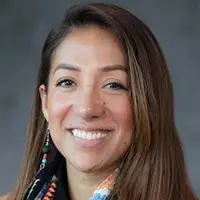 Erika Rosales Garcia is an undocumented immigrant and a DACA recipient. She is the former director of the Center for DREAMers at UW-Madison and the co-founder of the MISOL program, which has supported DACA beneficiaries through an educational study abroad program to visit their homeland of Mexico for the first time. Erika is also a 4W director of immigration and human rights and a member of the 4W Women in Translation Project.
Erika Rosales Garcia is an undocumented immigrant and a DACA recipient. She is the former director of the Center for DREAMers at UW-Madison and the co-founder of the MISOL program, which has supported DACA beneficiaries through an educational study abroad program to visit their homeland of Mexico for the first time. Erika is also a 4W director of immigration and human rights and a member of the 4W Women in Translation Project.
Erika currently works at the Wisconsin Center for Education Research as a training and organizational development specialist at WIDA. In her role she co-leads WIDA’s Social Justice Change Team and leads a learning initiative around Indigenous communities.
Additionally, Erika is a visual and performing artist who believes that art is medicine that heals us. She has performed locally and nationally and has also worked on local mural projects as well as facilitated youth art workshops.
Celerina Sánchez
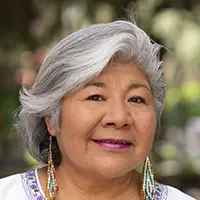
Celerina Patricia Sánchez Santiago is a Mixtec (Ñuu Savi) poet originally from Mesón de Guadalupe, district of Santiago Juxtlahuaca, in Oaxaca, Mexico. She has been a cultural promoter of the Ñuu Savi language and culture since 1988. She studied linguistics at the National School of Anthropology and History in Mexico (ENAH), and has worked as an oral narrator since 1993 and as a poet in 1997.
She has been a grant recipient from the National Fund for Culture and the Arts (FONCA) and her poems have been published in numerous anthologies and magazines. Selections from her work have been translated into French and English, and her published poetry collections include Tasu Yùùtì/Águila de Arena (Oralibrura, 2021).
Sánchez has participated in numerous poetry events in Mexico and abroad, and is a recognized leader among Ñuu Savi poets, both because she represents authentic traditional culture and adeep sense of place in her work, and because she integrates this with perspectives related to social justice, gender equality, and environmental care.
Lori DiPrete Brown
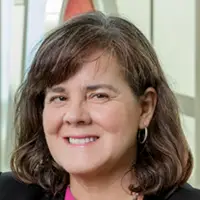 Lori DiPrete Brown, who translated Celerina Sanchez’s Tasu yùùtì/Águila de arena into English (Sand Eagle), is a member of the teaching faculty in the School of Human Ecology at the University of Wisconsin-Madison.
Lori DiPrete Brown, who translated Celerina Sanchez’s Tasu yùùtì/Águila de arena into English (Sand Eagle), is a member of the teaching faculty in the School of Human Ecology at the University of Wisconsin-Madison.
A multilingual transdisciplinary scholar focused on health, human rights, and sustainable development, she has worked in Mexico and throughout the Americas. She is a co-founder of the 4W Women in Translation Circle at UW, and holds degrees from Yale College, the Harvard Divinity School, and the Harvard School of Public Health.
DiPrete Brown served as a translator and co-editor for Montañas and Three or Four Ríos, (Editorial Universidad de Guadalajara, 2022) with Dr. Sarli Mercado. Her novel, Caminata, A Journey, is based on her Peace Corps Service in Honduras (1983-1985), where she lived and worked in a youth development program and first came to know and love the Spanish language.
Jennifer Gauthier
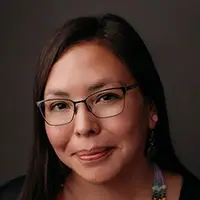 Jennifer K. Gauthier is an enrolled member of the Menominee Nation, located in what is now known as the State of Wisconsin. Jennifer earned a master of public administration from the University of Wisconsin-Oshkosh and a bachelor’s degree in political science from the University of Wisconsin-Madison.
Jennifer K. Gauthier is an enrolled member of the Menominee Nation, located in what is now known as the State of Wisconsin. Jennifer earned a master of public administration from the University of Wisconsin-Oshkosh and a bachelor’s degree in political science from the University of Wisconsin-Madison.
She provides leadership to a number of different institutions. She is the director of the Sustainable Development Institute at the College of Menominee Nation where Indigenous knowledge leads climate change, food systems, and sustainability related projects and research. She is a founding member and inaugural governance board member of the Kaehkenawapahtaeq Charter School, a Menominee language focused school on the Menominee Indian Reservation.
She is an advisory board member for the Whitburn Center at the University of Wisconsin-Oshkosh and is a graduate student mentor. She also serves as the chairperson of the Menominee Language and Culture Commission, where work is centered on language and culture revitalization and protection.
At the core of Gauthier’s work is the integration of Menominee language and culture into all aspects of professional and everyday life. She is skilled in Menominee-led strategic planning systems, mapping, and partnership building. She has been instrumental in building a Menominee food system, in creating transportation solutions centered in Menominee knowledge, in promoting sustainability, and in building cross-cultural partnerships between Indigenous communities and academia.
Above all, her work is inclusive of community voice and provides safe spaces for learning and sharing. Collectively, this work is a way of building healthy communities.
Gauthier is active in the community and is mindful of her Menominee responsibilities to share. She gives of her time to teach traditional arts and Menominee language, and shares knowledge through various community presentations and gatherings. She enjoys sewing, beading, weaving, and dancing at local social gatherings. She is most proud of her work with young people. Jennifer is inspired by her grandparents’ teachings and way of life.
Constantino Aucca
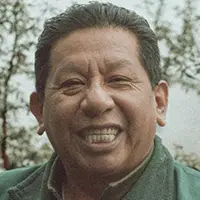 Constantino (Tino) Aucca is a visionary conservationist and indigenous leader dedicated to restoring the high Andean native forests of South America. As the President and co-founder of Asociación Ecosistemas Andinos (ECOAN), Tino has spearheaded the planting of more than three million native trees in collaboration with indigenous communities. His approach to conservation goes beyond reforestation, integrating sustainable development initiatives such as land rights advocacy, renewable energy solutions, ecotourism, and community-led economic empowerment.
Constantino (Tino) Aucca is a visionary conservationist and indigenous leader dedicated to restoring the high Andean native forests of South America. As the President and co-founder of Asociación Ecosistemas Andinos (ECOAN), Tino has spearheaded the planting of more than three million native trees in collaboration with indigenous communities. His approach to conservation goes beyond reforestation, integrating sustainable development initiatives such as land rights advocacy, renewable energy solutions, ecotourism, and community-led economic empowerment.
Since 2018 Tino is a president of Accion Andina – AA and helped to plant nearly 12 million trees along the Andes in 06 countries. Tino’s groundbreaking work has earned global recognition, including the 2023 Rolex Prize for Enterprise and the 2022 UN Champion of the Earth award. A proud Quechua, he has overcome systemic barriers to become a leading voice for indigenous stewardship of natural landscapes. His work exemplifies how traditional ecological knowledge, combined with modern science, can create lasting environmental and social change.
At Indigenous Natures: Science, Traditional Wisdom, and Poetry, Constantino will share insights from his decades of experience leading large-scale reforestation efforts and mobilizing indigenous communities to restore ecosystems. His talk will highlight the profound connection between cultural heritage, ecological resilience, and the urgent need for global reforestation efforts in the face of climate change.